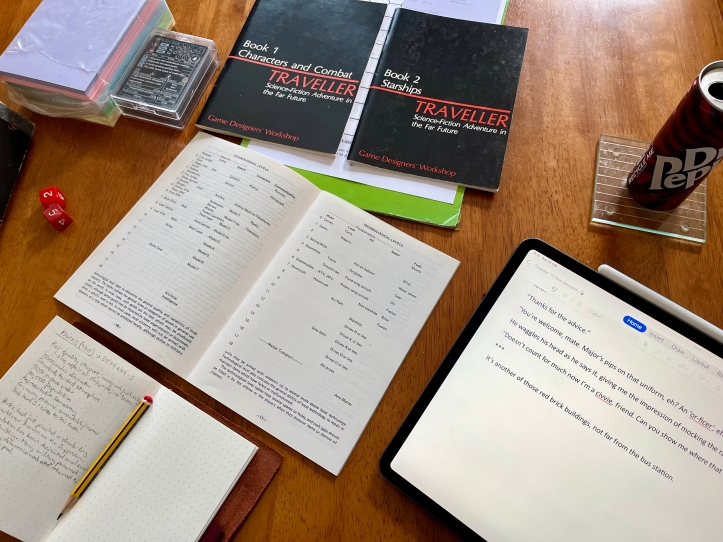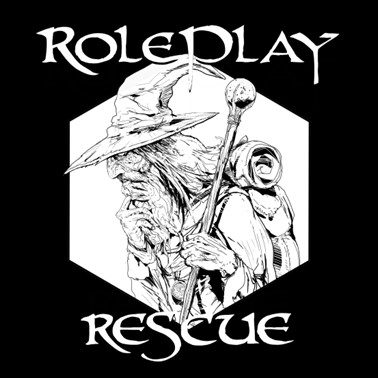Abstraction has dulled our experience of the world. This is a fact which eludes most people but lies at the root of feeling disconnected from everyday living. Much of that abstraction arises from our use of language.
The way in which we use language changes our experience of that which we describe. When we generalise is when we also abstract; we move away from the specific of this particular moment and enter into a category of experience.
In roleplaying games, and specifically in play wherein we seek to immerse ourselves in the Otherworld, the goal is to speak and be spoken to in-character so that we can experience the particulars of this place and this person.
As GM, I generally speak to players as if they are in character using the second-person:
You are standing in a narrow corridor…
When playing solo, my habit has been to write from the third-person past tense:
She was standing in a narrow corridor…
But I realise it is much more immersive to experience play in the moment using the active voice in the present tense.

Playing solo using Traveller ’77, I write in the first-person present tense:
I stand in the narrow corridor…
This grounds me in the moment. I experience as-if I am there. This is how life unfolds when I am attentive to the real world. I find it to be the most immersive state from which to record my imaginary activities.
Reflecting on the impact of this change solo, I realise that it would be more immersive for the player if the GM spoke to them in-character using the second-person in the present tense:
You stand in the narrow corridor, the smell of urine pungent upon the air. It’s dark ahead and you can barely see the outline of the walls as they turn right.
The player will declare an action, perhaps to approach the corner quietly and peer around it.
You carefully tread across the stone floor, mindful of small pebbles and pieces of broken bone so that you do not make a sound. You press your back against the wall to your right and slowly move your head to peek around the cold stone corner.
Details enrich the experience. Taking time to describe small sensual tidbits, to slow the pace of the moment so that it can be lived through. This is all towards the goal of embodying the character and the moment within the Otherworld.
When we shift from the third-person in the past to the second- or first-person narration of the present then we make a shift from abstract play to embodied experience. This makes it feel all the more real.
Game on!

Truth. It has yet to cease to amaze me, however, how many refute this technical point, and for which reasons (though parroting knee-jerk denial is often near the top of the list of those).
LikeLiked by 1 person
I prefer to write my solo notes in 3rd person present, but that might have something to do with the fact that I usually have 4-6 PCs, and frequently none of them is more of a ‘main character’ than the others, though this can change over time. I think I feel the world better this way too, as I can load the text with asides that a 1st person narrator wouldn’t necessarily know.
On a grammatical note, your example of 3rd person past tense isn’t passive, but active past progressive. Passive voice would be ‘the narrow corridor was being stood in by her’ — I certainly hope no one writes their game sessions up this way!
LikeLike
Thanks for correcting my grammar. And, yes, I can see how writing third person present tense works well for a party of adventurers solo – I did that with my own Crag’s Ruin solo game some months back. My point is that playing solo , one character, might be best experienced in the first-person present tense.
LikeLike